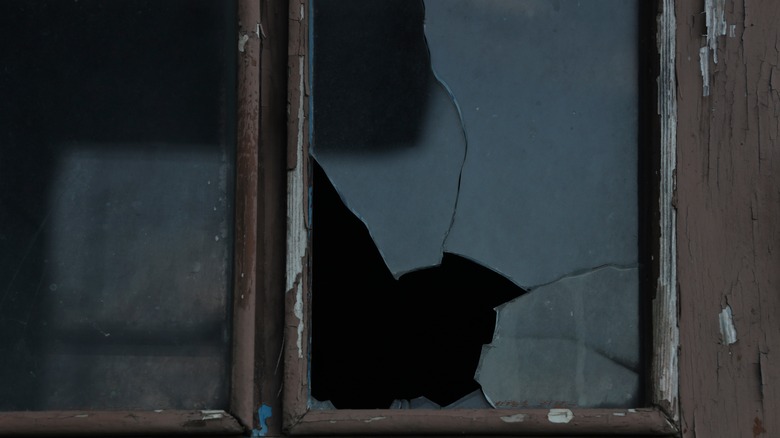Should You Really Stay Away From Windows During A Storm?
Storms have a way of commanding attention. The sky darkens and rain pelts against the glass in sheets. Most people instinctively drift toward the nearest window, drawn by the spectacle outside. It feels natural, even comforting, to watch the storm from the safety of your cozy living room. But that sense of safety could be misleading. Windows are the most vulnerable part of a home when the weather turns violent, and being near them puts you in unnecessary danger. So, as exciting as it sounds, standing near a window is something you must avoid at all costs during a thunderstorm.
This advice might sound overly cautious at first. After all, many of us have stood at a window during a storm with no harm done. However, that false sense of security is exactly what makes it risky, because indoors doesn't always mean safe. Windows remain the most fragile points of a house, and in many storm-related accidents, it's not the roof or walls that fail first but the windows. That's why experts urge caution long before conditions escalate and why it's good to follow the smart storm prep tips to minimize costly damage.
The hidden dangers of windows in a storm
At first glance, a window feels like a safe vantage point. It's a thick glass separating you from the chaos outside. But in a storm, that glass can turn against you in seconds. The biggest risk comes from flying debris. Tree branches, roof shingles, and something as ordinary as a lawn chair can be lifted and hurled straight at your window. If the glass shatters, you're dealing with the object itself and also sharp shards propelled into the room at an alarming speed. And it's not just debris you need to think about. Storms often bring hail, too, that may pound against the glass with enough force to crack or break it.
Then, there's the electrical side of things. Many windows are framed with metal or have conductive parts built into them. In the wrong moment, that makes them a weak point against lightning. A direct strike is rare, but if it happens, the electricity can travel through those components, putting anyone nearby at risk. Even without a direct hit, the sheer force of a strike close to your home may crack glass from the shock, leaving it fragile and primed to break under the next gust of wind. A safe distance could therefore mean the difference between enjoying the spectacle and being caught in its aftermath. Ideally, you and your family should move to the safest place in your home during a natural disaster.

